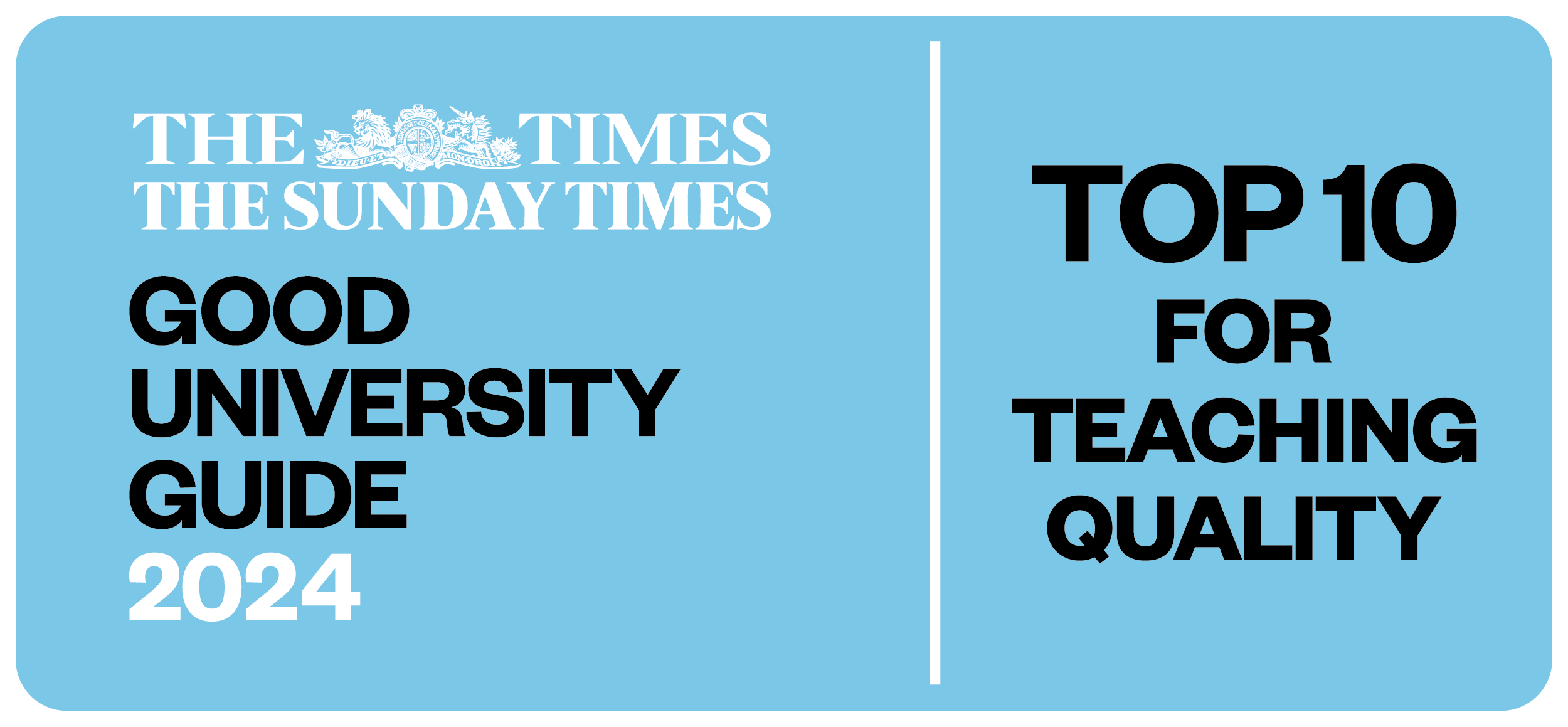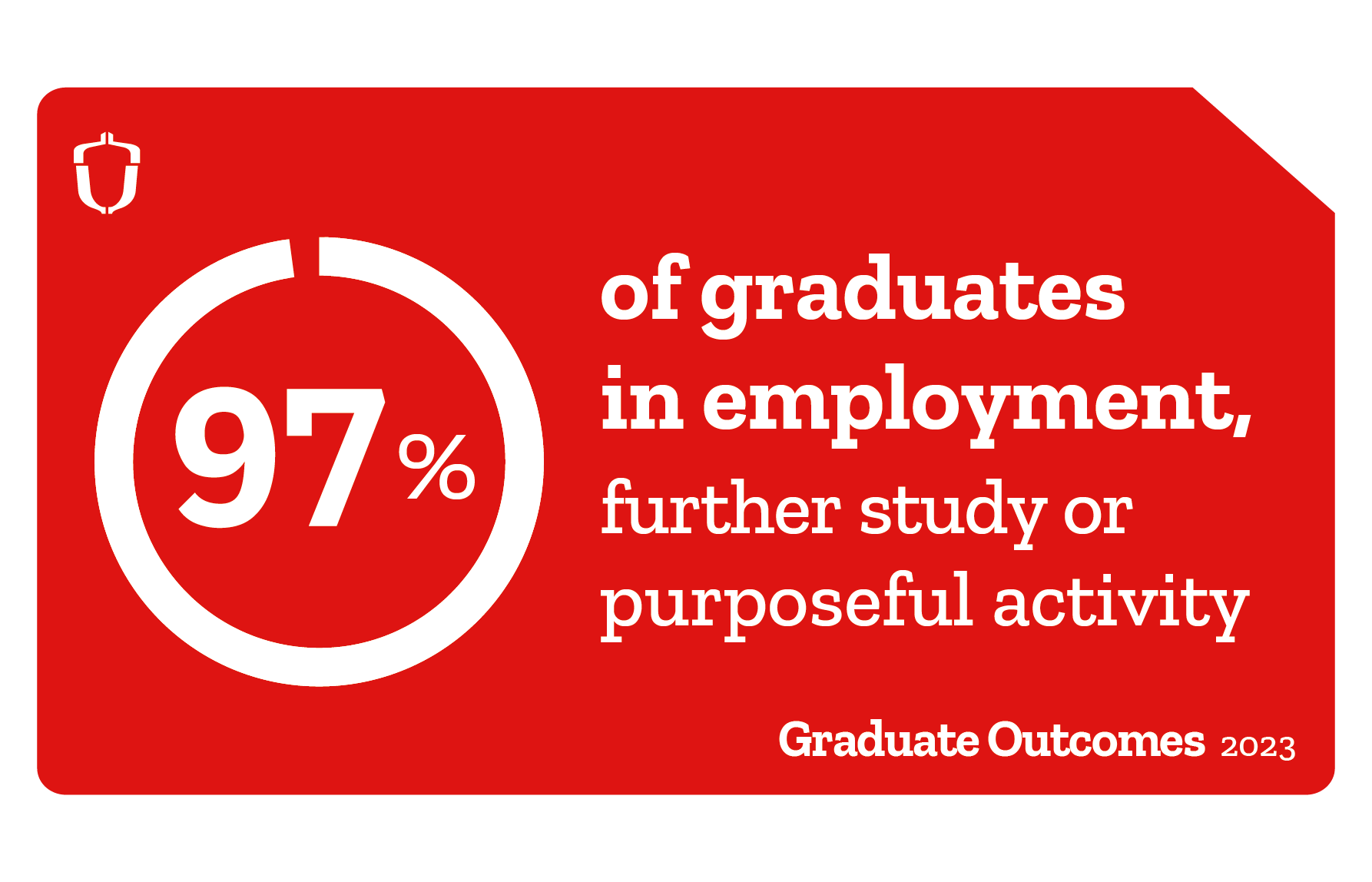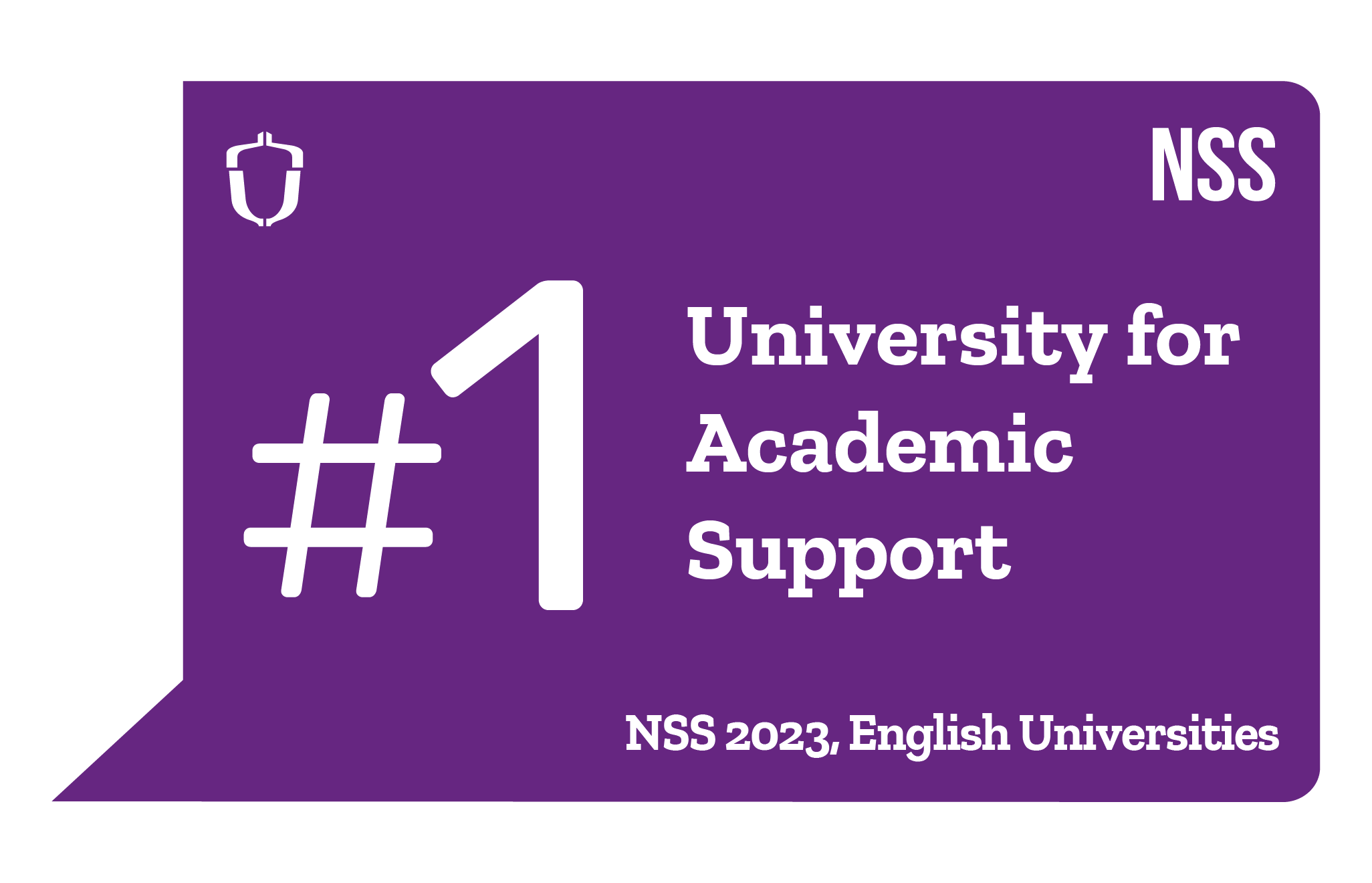You’ll apply what you learn to real-world scenarios using our on-site commercial facilities, including a dedicated rider performance centre, Equine Therapy Centre and human performance laboratory. Alongside this, you could also gain experience at our international equine events, which attract competitors, sponsors, and spectators from around the globe.
You don’t need to be able to ride to undertake this degree programme, you simply need the passion and drive to want to improve performance in equestrian sport, and an interest in the rider as an athlete.
The course is ideal for those with a keen interest in the scientific principles of sport performance, and those seeking a career at all levels, from grassroots to professional-level equestrian sport.
- UCAS | A typical offer for this course is 112 UCAS tariff points or equivalent.
- GCSE | A minimum of 5 GCSE A* to C, (or 9 to 4 where numeric grades are being awarded) or equivalent, to include English Language, Mathematics and a Science.
- A-level | Typical offer is BBC or equivalent. This must include a minimum of two A Levels including one in Biology at grade D or above.
- Vocational Award | Typical offer is a DMM in an Extended Diploma in a relevant subject.
- Access | Typical offer is 112 UCAS tariff points in an Access to Higher Education Diploma to include a minimum of a pass in a Biology module at Level 3
- IB | Typical offer is 112 UCAS tariff points in an IB Diploma, to include a minimum of two Highers at H3 or above, including one in Biology.
- Scottish Highers | Typical offer is 112 UCAS tariff points in Scottish Highers. This must include a minimum of one Advanced and One Higher, to include Biology.
- Irish Leaving Certificate | Typical offer is 112 UCAS tariff points in the Irish Leaving Certificate. This must include a minimum of two Highers including one in Biology at H4 or above. This must also include Maths and English Language at a minimum of Ordinary Level.
- OCR Cambridge Technical | Typical offer is a DMM in a Cambridge Technical Extended Diploma in a relevant subject.
- T Level | Typical offer is Merit in you T Level overall grade in a relevant subject.
The minimum academic entry requirement for this programme is 80 UCAS tariff or equivalent providing this is combined with relevant experience.
We welcome students with equivalent qualifications. Please contact us to discuss.We may interview mature applicants and those with non-traditional qualifications to ensure this is the right course for you.
Previous learning towards a university-level qualification or relevant work experience may count as credit for this course.
Please contact us for further information.
Email us
Your support network
You'll benefit from a strong support network from day one to be the best you can be. This will range from your personal tutor and specialist academic support team (our Achievement and Success Centre) to dedicated wellbeing and employability (Innovation, Careers and Enterprise) centres.
Academic support
You’ll have your own personal tutor while you’re here who will support you to succeed in your studies. You’ll also have access to our academic and wellbeing support teams who run regular workshops and one-to-one sessions on campus and online.
Alongside this, we have a comprehensive bank of online study skills resources to help you make the most of your qualification.
Your learning experiences
You'll experience a range of teaching methods to strengthen your digestion of topics, including lectures, workshops and practical sessions, as well as supported work placement learning as part of many courses.
Your career
Each year of your course will be made up of two semesters, within which you’ll study compulsory and optional modules on different industry-focused topics, enabling you to develop your own unique portfolio of knowledge, skills and experience, ready for your career. The course is taught in English.















